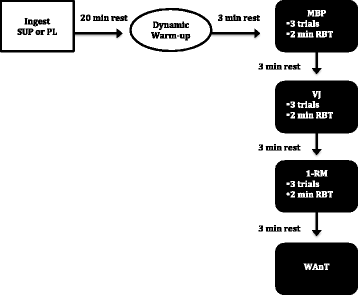Lorsss
Username: Lorsss
- Joined
- Sep 19, 2018
- Posts
- 10,725
- Reputation
- 18,990
Original article in Italian language, by Project Invicuts: link

The effects of alcohol on health are well-known, while people are less aware on alcohol's effects on muscle tissue: what is the relationship between alcohol consumption and muscle growth? If you work out in the gym, does alcohol consumption limit the results in terms of strength and hypertrophy?
Alcohol's action on muscle tissue affects structure and metabolism of skeletal muscles (and even heart muscle) both when alchool is consumed acutely (occasionally) and chronically (frequently), for example after a certain amount of alcohol drunk at once, there occurs a reduction of testosterone which lasts for even seven days.
Subjects who consume large and excessive alcohol amounts experience in the long run a significant decrease in lean mass and muscle tissue, as well as loss of strength in proportion to the amount and frequency of consumption. In addition, it can affect digestion and the absorption of nutrients, causing protein malnutrition and a lack of vitamins and minerals.
Alcohol, both in acute and chronic consumption, interferes with protein synthesis regardless of gender and age, including protein synthesis of muscle proteins (sarcoplasmic and contractile proteins such as myosin), especially in the first hours of intake but also up to 24 hours, more than halving the proteosynthesis once 0.8 g of alcohol / kg body weight is consumed.
Acetaldehyde, a key molecule that derives from the metabolism of ethanol, directly inhibits muscle protein synthesis when in high concentrations.
From an endocrine point of view, alcohol involves:
Excessive alcohol such as binge drinking activates the adrenal axis and leads to the release of cortisol during the day which, in turn, induces:

Alcohol alters the secretion of gonadotropins resulting in:
These alterations, if suffered by young people, have consequences also as adults. It takes 7 days for testosterone level to return to normal: which is why, if you aim for an improvement in muscle mass and body composition, drinking excessively once a week (e.g. every Saturday night) will certainly have a negative impact.
In the long run - although, testosterone level is just one of the factors affecting muscle growth, not the only factor or the most significant.

With regard to sleep, alcohol has a different effect depending on whether we consider the short or long term:
in the short term it promotes a state of drowsiness and promotes sleep;
in the long run, on the contrary, the quality of sleep worsens
Sleeping well is important, especially if you train a quality sleep promotes recovery as well as a better quality of life (for example, with reduction of stress), so chronic alcohol consumption is also counterproductive in this case.

WHO guidelines use the alcohol unit (A.U) as a reference, one alcohol unit corresponds to 12 g of alcohol and therefore to:

Just like all foods, alcohol makes you get fat only in a context of calorie surplus. Considering this premise, let's deepen some details.
Pure alcohol provides more calories than protein and carbohydrates: 7 kcal per gram provided by alcohol versus 4 kcal per gram provided by protein and carbs.
You also have to consider other calories in alcoholic beverages, for example cocktails are often stirred with cane sugar or syrup or contain carbotaned drinks (soda) with sugar. Beer contains carbs from barley malt and hop, wine contains carbs from grape.
Alcoholic calories are considered "empty calories" as they provide energy but do not provide useful nutrients to the body. Therefore consumption of alcohol is to be considered within the daily calorie requirement as an energy source even if not useful: the calories introduced are in your body.
Ethanol is a harmful substance for the body (which is why if you are not already used to consuming alcohol it is recommended not to start) and for this reason in the liver the dygestion of alcoholis preferential over the consumption of other macronutrients so alcohol is eliminated fast In this way, acetyl-CoA is accumulated, a molecule that derives from the catabolism of carbohydrates and fats and which, when in excess, stimulates liposynthesis: in these terms, alcohol promotes the accumulation of fat.
In conclusion, drinking moderately and not too frequently does not really affect gym results.
However it's another story for those who exceed with the quantities especially in the chronic abuse. Using the alcohol unit as a reference, a man can consume up to 2 per day, the woman 1, remembering that 1 alcohol unit corresponds to 12 g of alcohol which are contained in:
It is better to consume alcohol in moderate quantities (or avoid it completely) and ideally together with a meal, both for health and muscle growth
image source

The effects of alcohol on health are well-known, while people are less aware on alcohol's effects on muscle tissue: what is the relationship between alcohol consumption and muscle growth? If you work out in the gym, does alcohol consumption limit the results in terms of strength and hypertrophy?
Alcohol's action on muscle tissue affects structure and metabolism of skeletal muscles (and even heart muscle) both when alchool is consumed acutely (occasionally) and chronically (frequently), for example after a certain amount of alcohol drunk at once, there occurs a reduction of testosterone which lasts for even seven days.
Subjects who consume large and excessive alcohol amounts experience in the long run a significant decrease in lean mass and muscle tissue, as well as loss of strength in proportion to the amount and frequency of consumption. In addition, it can affect digestion and the absorption of nutrients, causing protein malnutrition and a lack of vitamins and minerals.
Alcohol, both in acute and chronic consumption, interferes with protein synthesis regardless of gender and age, including protein synthesis of muscle proteins (sarcoplasmic and contractile proteins such as myosin), especially in the first hours of intake but also up to 24 hours, more than halving the proteosynthesis once 0.8 g of alcohol / kg body weight is consumed.
Acetaldehyde, a key molecule that derives from the metabolism of ethanol, directly inhibits muscle protein synthesis when in high concentrations.
From an endocrine point of view, alcohol involves:
- reduced secretion of growth hormone and IGF-1 and, therefore, less stimulation of protein and bone anabolism, loss of bone and lean mass; depression of the thyroid axis, with reduced secretion of T4 and reduced conversion to T3 ("the metabolism is lowered");
- increased activity of the aromatase enzyme in the liver: more androgens are converted into estrogen, which in humans leads to hypogonadism, gynecomastia, overweight, reduced vigor and strength, mood alterations.
Alcohol and cortisol
Excessive alcohol such as binge drinking activates the adrenal axis and leads to the release of cortisol during the day which, in turn, induces:
- increased blood sugar
- insulin resistance
- protein catabolism
- increased visceral fat
- immune suppression
- hypertension.
Alcohol and testosterone

Alcohol alters the secretion of gonadotropins resulting in:
- reduced fertility;
- reduction of testosterone in men;
- increased prolactin (involved in amenorrhea and lactation in women, while in hypogonadism, impotence and gynecomastia in men).
These alterations, if suffered by young people, have consequences also as adults. It takes 7 days for testosterone level to return to normal: which is why, if you aim for an improvement in muscle mass and body composition, drinking excessively once a week (e.g. every Saturday night) will certainly have a negative impact.
In the long run - although, testosterone level is just one of the factors affecting muscle growth, not the only factor or the most significant.
Alcohol and sleep quality

With regard to sleep, alcohol has a different effect depending on whether we consider the short or long term:
in the short term it promotes a state of drowsiness and promotes sleep;
in the long run, on the contrary, the quality of sleep worsens
Sleeping well is important, especially if you train a quality sleep promotes recovery as well as a better quality of life (for example, with reduction of stress), so chronic alcohol consumption is also counterproductive in this case.
How much alcohol can you drink safely?

WHO guidelines use the alcohol unit (A.U) as a reference, one alcohol unit corresponds to 12 g of alcohol and therefore to:
- 330 ml of beer
- 125 ml of wine
- 40 ml of spirits.
For women it is acceptable to consume a maximum of 1 AU per day, while for men a maximum of 1-2 AU as they have a more consistent enzymatic system used for the disposal of alcohol. It is therefore possible to drink some beer even in the case of athletes in an appropriate food context, considering that beer is the alcoholic drink that contains less ethanol for the same quantity. Drinking 1 unit of alcohol a day for a week is different from never drinking and consuming 7 at once:
we define binge drinking for men drinking over 5 AU at once. and for women drinking over 4 AU at once
An occasional excessive amount of alcohol is more detrimental to health and detrimental to gym gains than a moderate daily consumption
we define binge drinking for men drinking over 5 AU at once. and for women drinking over 4 AU at once
An occasional excessive amount of alcohol is more detrimental to health and detrimental to gym gains than a moderate daily consumption
How alcohol affects weight gain

Just like all foods, alcohol makes you get fat only in a context of calorie surplus. Considering this premise, let's deepen some details.
Pure alcohol provides more calories than protein and carbohydrates: 7 kcal per gram provided by alcohol versus 4 kcal per gram provided by protein and carbs.
You also have to consider other calories in alcoholic beverages, for example cocktails are often stirred with cane sugar or syrup or contain carbotaned drinks (soda) with sugar. Beer contains carbs from barley malt and hop, wine contains carbs from grape.
Alcoholic calories are considered "empty calories" as they provide energy but do not provide useful nutrients to the body. Therefore consumption of alcohol is to be considered within the daily calorie requirement as an energy source even if not useful: the calories introduced are in your body.
Ethanol is a harmful substance for the body (which is why if you are not already used to consuming alcohol it is recommended not to start) and for this reason in the liver the dygestion of alcoholis preferential over the consumption of other macronutrients so alcohol is eliminated fast In this way, acetyl-CoA is accumulated, a molecule that derives from the catabolism of carbohydrates and fats and which, when in excess, stimulates liposynthesis: in these terms, alcohol promotes the accumulation of fat.
Conclusion and practical tips
In conclusion, drinking moderately and not too frequently does not really affect gym results.
However it's another story for those who exceed with the quantities especially in the chronic abuse. Using the alcohol unit as a reference, a man can consume up to 2 per day, the woman 1, remembering that 1 alcohol unit corresponds to 12 g of alcohol which are contained in:
- 125 ml of wine
- 330 ml of beer
- 40 ml of spirits.
It is better to consume alcohol in moderate quantities (or avoid it completely) and ideally together with a meal, both for health and muscle growth
1. Steiner JL, Lang CH. Dysregulation of skeletal muscle protein metabolism by alcohol. Am J Physiol Endocrinol Metab. 2015;308(9):E699-E712. doi:10.1152/ajpendo.00006.2015
2. Kimball SR, Lang CH. Mechanisms Underlying Muscle Protein Imbalance Induced by Alcohol. Annu Rev Nutr. 2018 Aug 21;38:197-217. doi: 10.1146/annurev-nutr-071816-064642. PMID: 30130465; PMCID: PMC6377942.
3. Alcol (salute.gov.it)
2. Kimball SR, Lang CH. Mechanisms Underlying Muscle Protein Imbalance Induced by Alcohol. Annu Rev Nutr. 2018 Aug 21;38:197-217. doi: 10.1146/annurev-nutr-071816-064642. PMID: 30130465; PMCID: PMC6377942.
3. Alcol (salute.gov.it)






